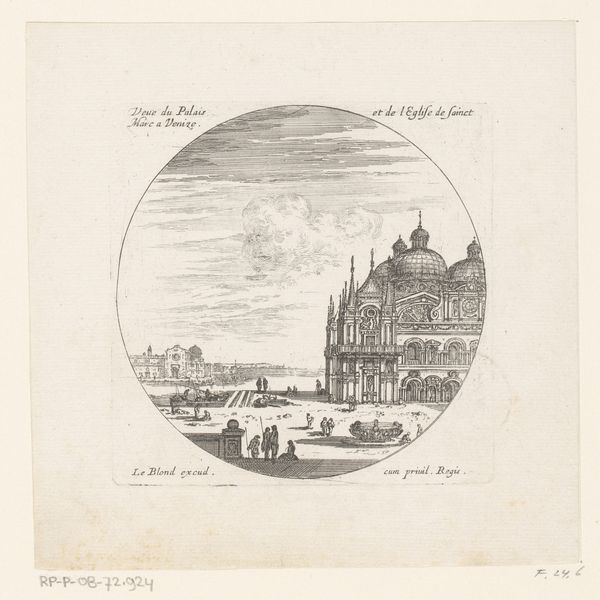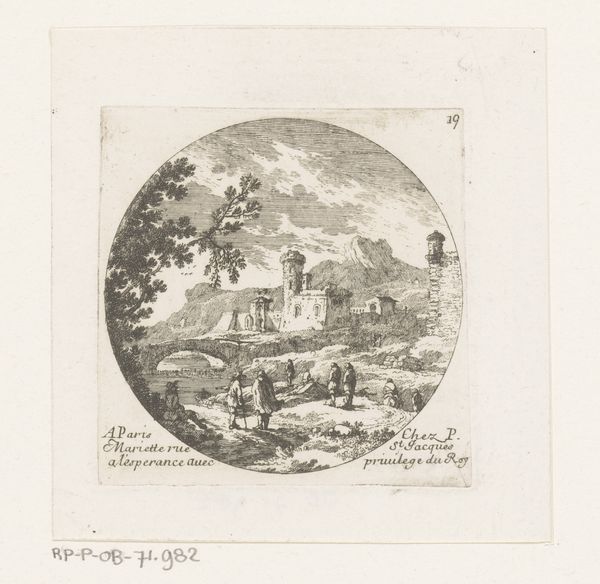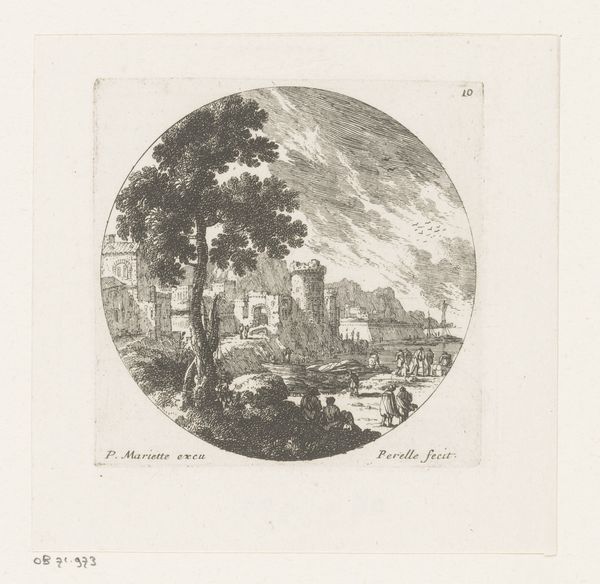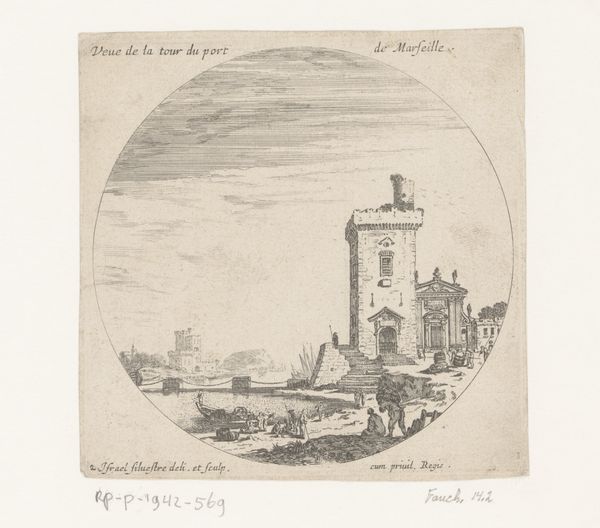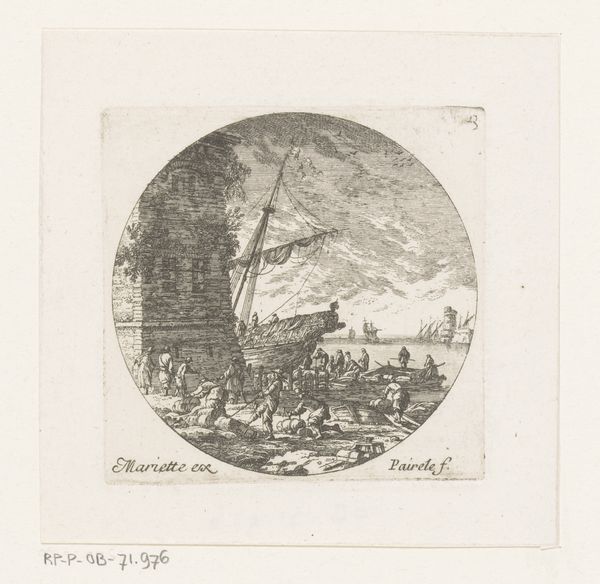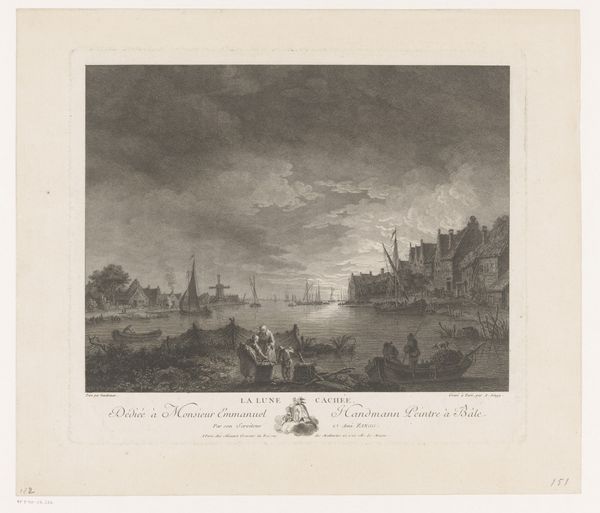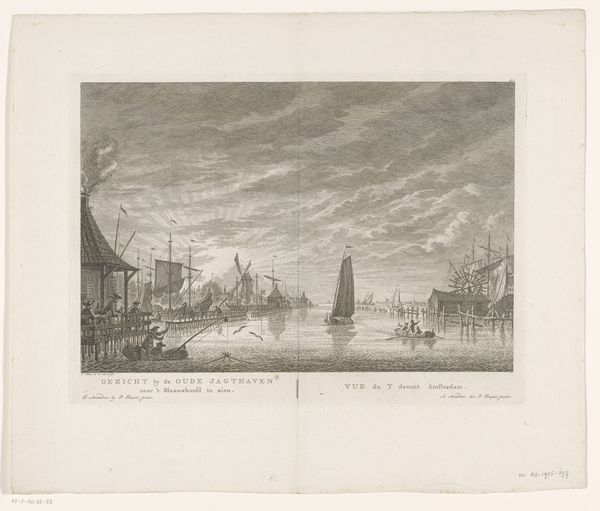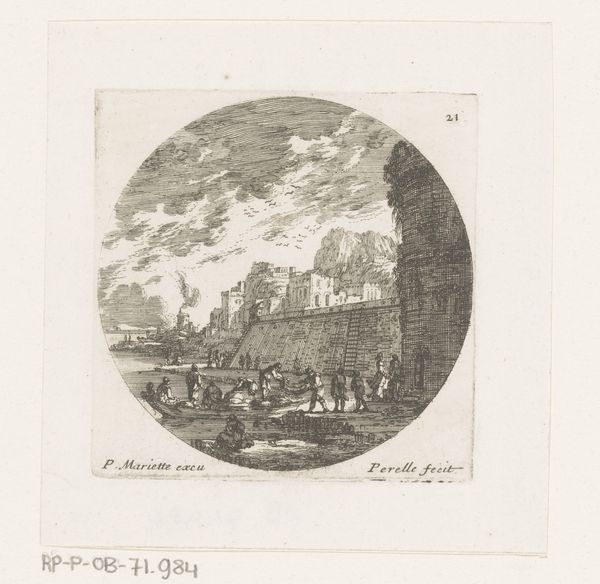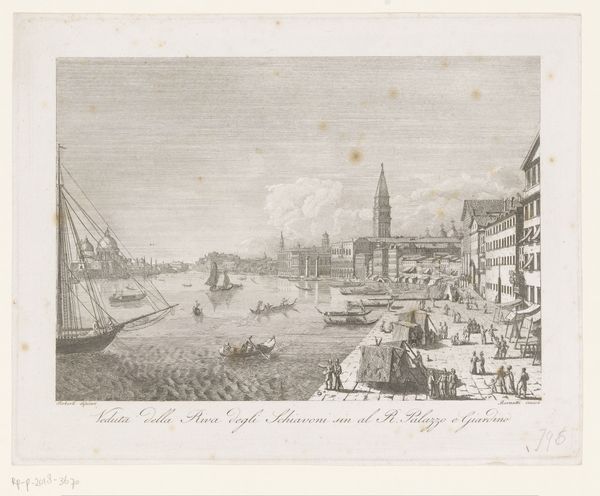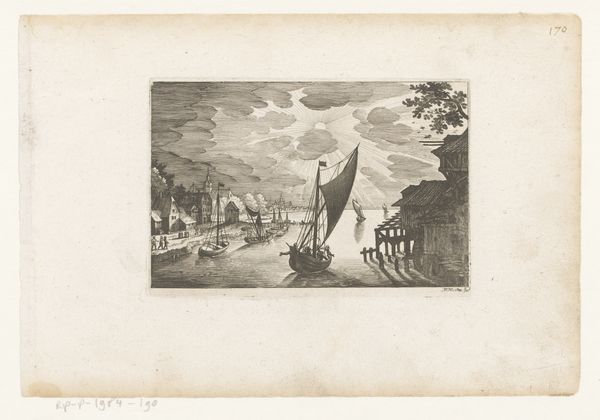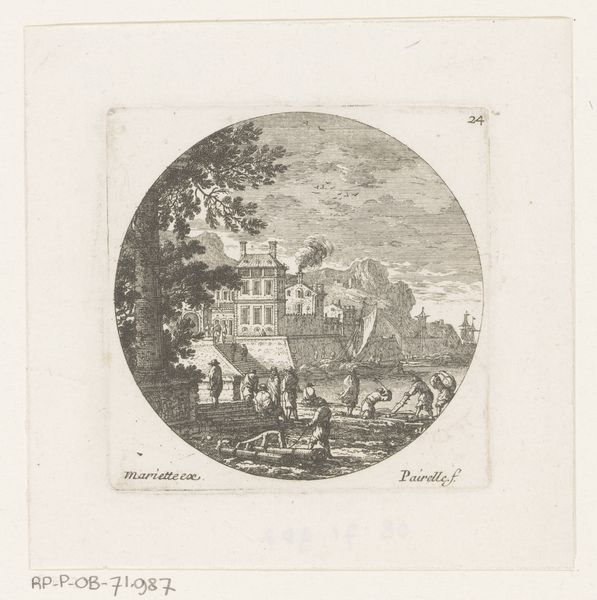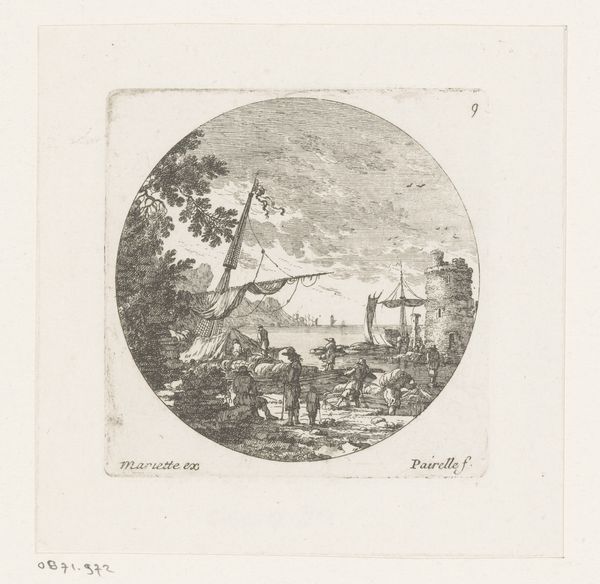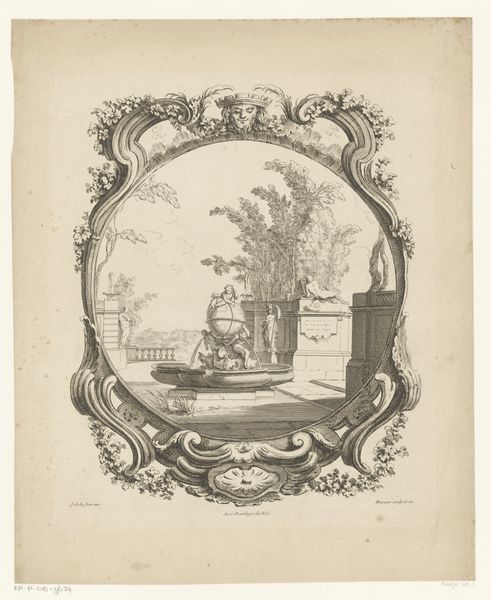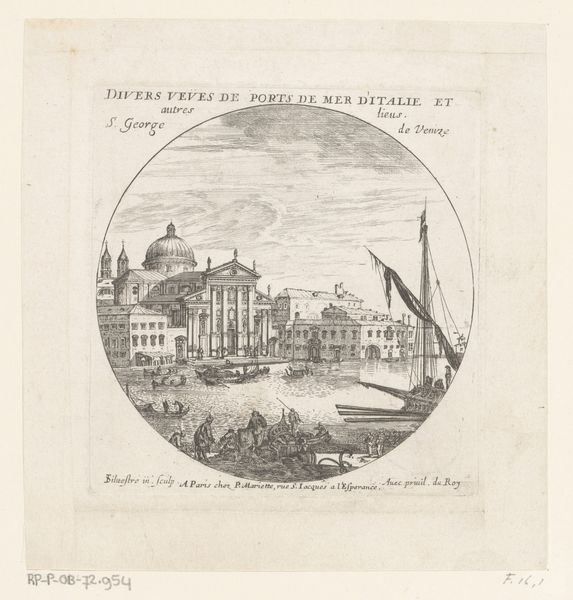
print, etching
#
dutch-golden-age
# print
#
etching
#
landscape
#
cityscape
Dimensions: height 84 mm, width 113 mm
Copyright: Rijks Museum: Open Domain
Matthieu van Plattenberg, also known as Montaigne, created this small etching of a harbor scene in the 17th century. The printmaking process involved coating a copper plate with wax, then using a sharp needle to draw through the wax, exposing the metal. The plate was then submerged in acid, which bit into the exposed lines. This painstaking work resulted in an image made entirely of tiny etched lines. Note how the composition is rendered entirely through line-work. The atmospheric quality of the sunset is achieved solely by modulating the density of the marks, and the labor that went into the work is palpable. Consider the social context in which this print was made. Printmaking was a key technology for circulating images and ideas, allowing artists like van Plattenberg to reach a wider audience and participate in a burgeoning visual culture. The fine lines that define the images speak to the growth of trade and the increasing mercantile aesthetic that emerged in the Netherlands at this time. The work's meaning lies in its material, its making, and its historical context.
Comments
No comments
Be the first to comment and join the conversation on the ultimate creative platform.
